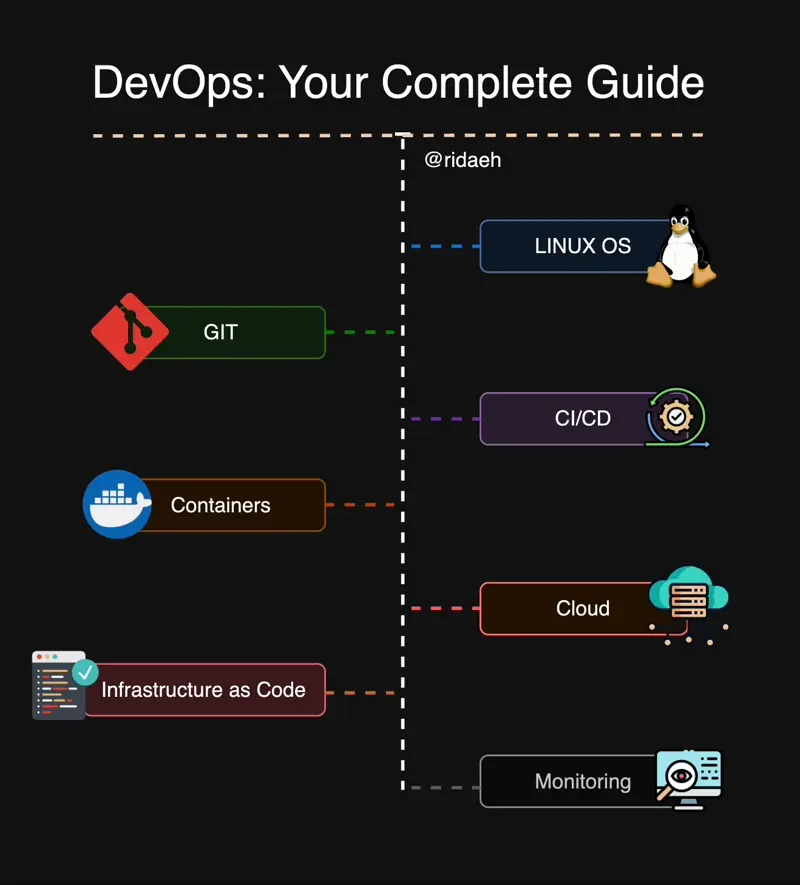 In the fast-paced world of IT and software development, DevOps engineers are the unsung heroes bridging the gap between development and operations teams. Their mission? To ensure software is developed, tested, and deployed swiftly and reliably. If you’re aspiring to become a DevOps engineer, you’ve come to the right place. This guide will walk you through everything you need to know to embark on this exciting career path.
In the fast-paced world of IT and software development, DevOps engineers are the unsung heroes bridging the gap between development and operations teams. Their mission? To ensure software is developed, tested, and deployed swiftly and reliably. If you’re aspiring to become a DevOps engineer, you’ve come to the right place. This guide will walk you through everything you need to know to embark on this exciting career path.
What is DevOps?
DevOps is a philosophy that combines software development (Dev) and IT operations (Ops) to shorten the systems development life cycle while delivering high-quality software continuously. It’s more than just a set of practices or tools—DevOps is a culture that promotes collaboration between development and operations teams to achieve seamless integration and delivery.
Essential Skills for a DevOps Engineer
To thrive as a DevOps engineer, you need a diverse skill set. Here are the key areas you should focus on:
- Programming and Scripting: Master languages like Python, Ruby, and Java, and get comfortable with scripting in Bash or PowerShell.
- System Administration: Gain in-depth knowledge of operating systems (Linux/Unix and Windows), networking, and system architecture.
- CI/CD Pipelines: Familiarize yourself with continuous integration and continuous deployment tools like Jenkins, Travis CI, CircleCI, or GitLab CI.
- Infrastructure as Code (IaC): Learn to manage infrastructure with tools like Terraform, Ansible, Chef, or Puppet.
- Containerization: Understand Docker and Kubernetes for deploying and managing containerized applications.
- Cloud Services: Get hands-on experience with cloud providers such as AWS, Azure, or Google Cloud Platform (GCP).
- Monitoring and Logging: Use monitoring tools like Prometheus and Grafana, and logging tools like the ELK Stack (Elasticsearch, Logstash, Kibana). Version Control: Proficiency in using Git is essential.
Steps to Becoming a DevOps Engineer
1. Get Educated
While a formal degree in computer science or a related field can be beneficial, it’s not a strict requirement. Many successful DevOps engineers are self-taught or have transitioned from other IT roles. Here’s how you can start:
- Online Courses and Bootcamps: Platforms like Coursera, Udacity, and Pluralsight offer specialized DevOps courses that can give you a strong foundation.
- Certifications: Earning certifications like AWS Certified DevOps Engineer, Google Professional DevOps Engineer, or Docker Certified Associate can validate your skills and boost your job prospects.
2. Learn the Basics
Start with a solid understanding of the fundamentals:
- Operating Systems: Gain expertise in both Linux and Windows.
- Networking: Understand essential networking concepts, protocols, and configurations.
- Programming: Learn at least one programming language, with Python being a popular choice.
3. Master Tools and Technologies
Get hands-on experience with key DevOps tools:
- Version Control: Practice using Git and platforms like GitHub or GitLab.
- CI/CD: Get comfortable with tools like Jenkins, Travis CI, and CircleCI.
- Configuration Management: Explore Ansible, Puppet, and Chef.
- Containers: Dive into Docker and Kubernetes.
- Cloud Platforms: Gain proficiency in AWS, Azure, or GCP.
- Monitoring: Use tools like Prometheus, Grafana, and the ELK Stack.
4. Hands-On Practice
Building practical skills is crucial:
- Creating Projects: Apply DevOps practices to personal or open-source projects.
- Internships and Jobs: Look for internships or entry-level positions in IT to gain real-world experience.
- Labs and Environments: Use cloud-based labs and environments to simulate DevOps tasks.
5. Embrace the DevOps Culture
DevOps is as much about culture as it is about tools and processes. Embrace these core principles:
- Collaboration: Foster strong communication between development and operations teams.
- Automation: Automate repetitive tasks to increase efficiency.
- Continuous Improvement: Always look for ways to improve processes and outcomes.
6. Stay Updated
The DevOps field is constantly evolving. Stay current by:
- Reading Blogs and Books: Follow industry blogs and read books by thought leaders.
- Attending Conferences: Participate in DevOps conferences and meetups.
- Networking: Join DevOps communities on platforms like Reddit, Stack Overflow, and LinkedIn.
Conclusion
Becoming a DevOps engineer requires a blend of technical skills, practical experience, and a deep understanding of the DevOps culture. By following these steps and committing to continuous learning, you can build a successful career in this dynamic field. Remember, the journey to becoming a DevOps engineer is a marathon, not a sprint. Stay patient, persistent, and proactive in your learning and career development.